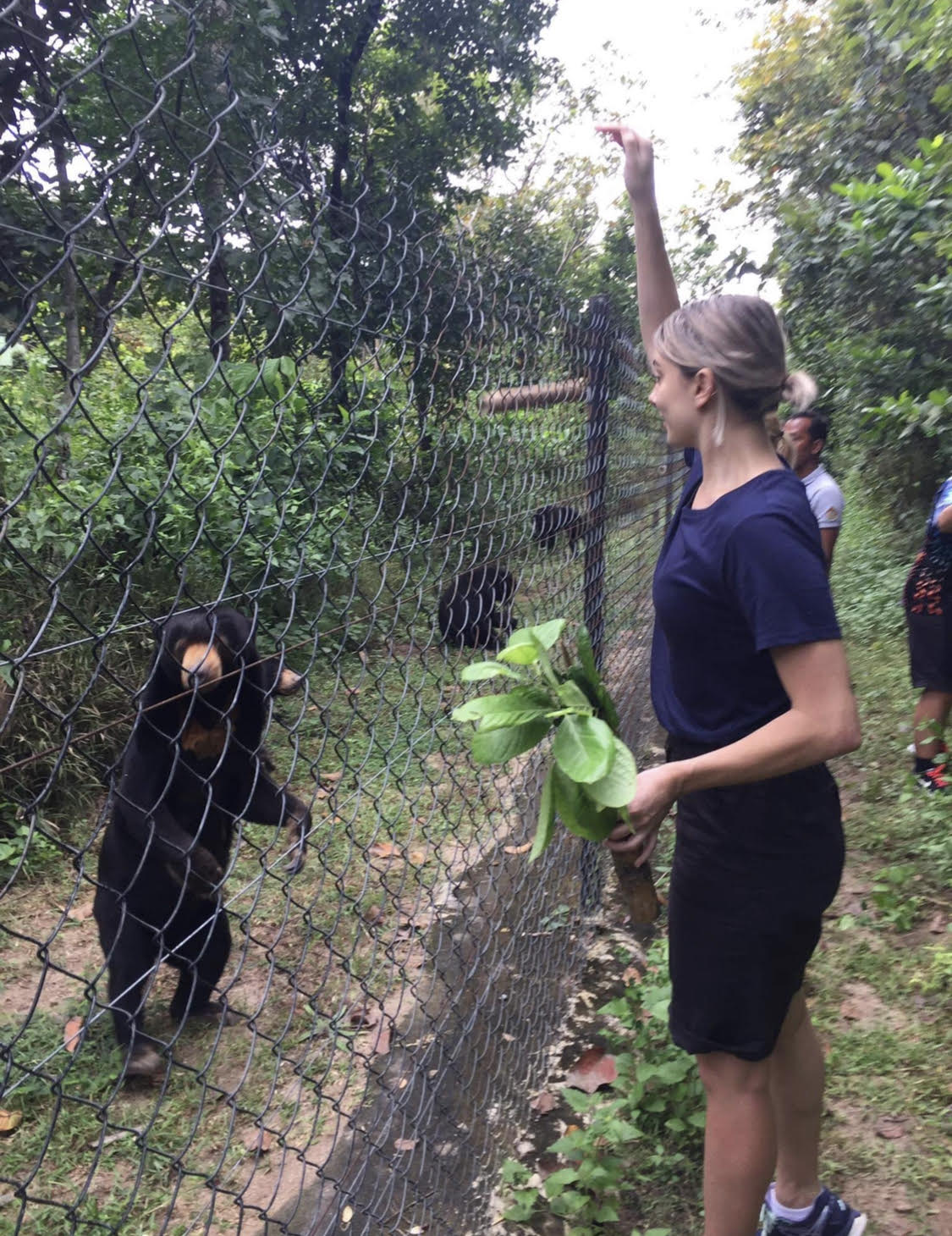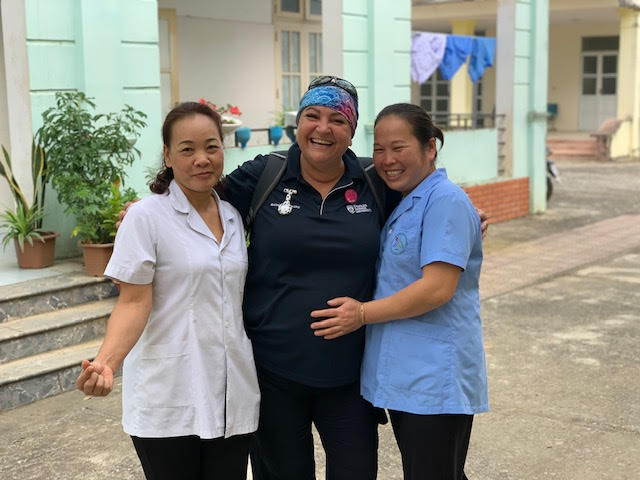Bali wasn't a place that 37-year-old Aaron Sutton would have travelled to but he found it a rich and rewarding cultural experience. He recently completed a Bachelor of Biomedical Science at the University of Western Australia and is now studying medicine. Aaron saw many similarities to Australian Aboriginal culture from a health perspective. “Just seeing Bali from the Indigenous perspective related to my studies - that was great,” he said.
“The first thing I noticed was how connected to family they are in Bali and how family is everything. It's the first parallel a lot of us drew. It's similar in ways to Aboriginal culture. Also, looking at how they live remotely is similar to Aboriginal culture. For me, I always look at how health care can be better. Looking at their system and how they live and then how we do things in our areas in Australia. They do a pretty good job at health centres in rural areas. So even if in middle of jungle it wasn't far to get necessities whereas in Australia's remote areas you would have to travel far to get necessary medical treatment or medications.”
Aaron did miss his wife and children while away, but found his experience so rewarding he is planning to take them to Bali to see everything that he did. “It was difficult being away, but being able to report back to my family about the exciting stuff and the possibility of sharing it with them on a future trip. I like exploring and finding out things for my family to experience.”
His tips for others? “Have an open mind. Be ready to explore and share and be ready to change. Be adaptable. This thing will change you as a person for the better but your willingness to allow these experiences to change you will allow you to get the most out of it.”
The New Colombo Plan Mobility Program provides funding to Australian universities to support Australian undergraduate students to participate in semester-based or short-term study, internships or research in 40 host locations across the Indo-Pacific region.
“Eye opening. Amazing. Authentic. Hard work, but also humbling.” That's how 27-year-old Gamilaroi woman, Jasmyne Mehrton-Johnson described her three weeks in Cambodia as a New Colombo Plan Mobility Program participant.
Jasmyne combined her studies for a Bachelor of Business with a marketing major at the University of the Sunshine Coast with work with the Free the Bears Project in Cambodia.
“It was just so wonderful to be there and help. These bears are rescued from people who treated them so poorly. The bear keepers have such a connection with the bears and for them to let us come in and help them was great.”
Jasmyne was also able to experience the local culture and history as part of her program. “I loved the temples and went to Angkor Wat. It was absolutely amazing and to see a lot of the temples built by hand was so incredible. The details and story behind it is similar to stories of Aboriginal culture. There is culture behind the building and it was amazing to see that.”
“It was a great opportunity to travel and to volunteer overseas. I absolutely loved it and would go back again.”
For 45-year-old Waanyi/Takalaka woman, Karita McCarthy, her three weeks in Vietnam was an eye-opening experience as she'd not travelled overseas before. She undertook a NCP Mobility Project as a course placement for her Bachelor of Nursing degree at Charles Darwin University.
“I knew it would be tough but I don't think till you set foot in another country do you realise how hard it can be,” she said. For her, the Vietnamese people really made her experience. “Definitely the people, the culture and the way they dress and how the younger people look after older people, how they interacted. It was so loving and friendly and touching.”
Karita was part of a group of 12 including three other Indigenous students who undertook a three-week clinical placement in the Mai Chau district as part of a nursing project established by two other Australian universities. Karita said the most valuable experience for her was applying what she learned in Vietnam to her work as a nurse in Australia.
“They often had interpreters for us with the Vietnamese patients. The experience of working with an interpreter was priceless. I had that experience in Vietnam and it's been really beneficial for the care that I provide people now in Australia who may come from other countries and need an interpreter.
Although Karita found some aspects of the trip challenging – there were no regrets. “Just do it go outside your comfort zone.”
Jasmyne agrees. “It's a wonderful experience that if you ever have the opportunity to do you should jump on board,” she said. “It might be daunting for people living at home or who not been overseas before, but once there you settle in and you learn so much from people around you and the culture your surrounded by. It's just so worthwhile”
And Aaron is a genuine advocate for the experience. “I say to every student, more so Indigenous students, that they have the opportunities like these during tertiary study and they need to explore these opportunities - just the exposure of going overseas in the first place will open up their world so much and the experiences when away are priceless.”
The New Colombo Plan team wishes our Indigenous alumni and future participants a happy NAIDOC Week 2020!



